What Caused The Year Without A Summer In 1816?
Ellen Lloyd - AncientPages.com - The Year 1816 was very different from other periods in Earth’s history.
Due to severe climate abnormalities that caused average global temperatures to decrease by 0.4–0.7 °C (0.7–1.3 °F), people living in the Northern Hemisphere didn’t experience any summer.
 Volcano eruption. Painting by J.C. Dahl (1788 Bergen - 1857 Dresden. Credit: Public Domain
Volcano eruption. Painting by J.C. Dahl (1788 Bergen - 1857 Dresden. Credit: Public Domain
It was not only extremely cold that year but also very dark, windy, and rainy. These severe climate changes resulted in significant food shortages and challenging living conditions.
It took some time before scientists could finally determine what was behind the climate anomaly and found the answer to their questions on the other side of the planet, at Indonesia’s volcano Mount Tambora.
On April 5, 1815, Mount Tambora started to rumble with activity. Over the following four months, the volcano exploded, and the eruption became the most powerful volcanic eruption in recorded human history.
The volcano ejected ash and aerosols into the atmosphere, darkening the sky and blocking the Sun from view. Many people lost their lives.
Towns and homes were covered with ash. Smaller particles spewed by the volcano made their way into the stratosphere, and our planet’s temperature dropped three degrees Celsius. The effect was temporary but long enough to cause serious climate problems.
Map of unusually cold temperatures in Europe during the summer of 1816. Credit: Creative Commons, authored by Giorgiogp2
The Year Without a Summer had many impacts in Europe and North America. Frost or a lack of sunshine killed crops, and people had very little food. Food riots broke out in the United Kingdom and France, and grain warehouses were looted. In Hungary, people experienced brown snow; in Italy, there was red snow.
The year without a summer in 1816 gave an unusual inspiration to writers such as Mary Shelley, her husband, the poet Percy Bysshe Shelley, and poet Lord Byron. They were on vacation at Lake Geneva. While trapped indoors for days by constant rain and gloomy skies, the writers described the bleak, dark environment of the time in their ways.
Mary Shelley wrote Frankenstein, a horror novel set in an often stormy environment. Lord Byron wrote the poem ”Darkness,” which begins, “I had a dream, which was not all a dream. The bright Sun was extinguished.”
Eventually, the climate became stable again.
However, it cannot be denied that such massive volcanic eruptions bring enormous devastation to our planet.
Updated on July 20, 2022
Written by Ellen Lloyd – AncientPages.com
Copyright © AncientPages.com All rights reserved. This material may not be published, broadcast, rewritten or redistributed in whole or part without the express written permission of AncientPages.com
Expand for referencesMore From Ancient Pages
-
 Beware Of The Shapeshifting Gaelic Bodach Who May Be Difficult To Trick
Christmas Traditions | Dec 3, 2021
Beware Of The Shapeshifting Gaelic Bodach Who May Be Difficult To Trick
Christmas Traditions | Dec 3, 2021 -
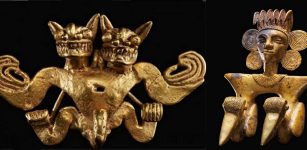 Mysterious Sophisticated Gran Coclé Culture Reveals Its Ancient Secrets
Civilizations | Mar 9, 2020
Mysterious Sophisticated Gran Coclé Culture Reveals Its Ancient Secrets
Civilizations | Mar 9, 2020 -
 Jamukha: Mongolian Leader, Military And Childhood Friend Of Genghis Khan But Not Forever
Featured Stories | May 8, 2019
Jamukha: Mongolian Leader, Military And Childhood Friend Of Genghis Khan But Not Forever
Featured Stories | May 8, 2019 -
 On This Day In History: Battle of Englefield Was Fought – On Dec 31, 870
News | Dec 31, 2016
On This Day In History: Battle of Englefield Was Fought – On Dec 31, 870
News | Dec 31, 2016 -
 Ji Gong: Legendary Ancient Monk Who Defended People Against Injustice
Chinese Mythology | Jan 31, 2016
Ji Gong: Legendary Ancient Monk Who Defended People Against Injustice
Chinese Mythology | Jan 31, 2016 -
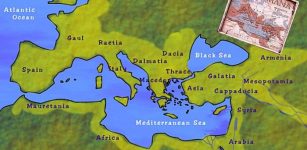 Dark And Light Sides Of Pax Romana: Great Political Slogan Introduced After Civil Wars
Ancient History Facts | May 20, 2023
Dark And Light Sides Of Pax Romana: Great Political Slogan Introduced After Civil Wars
Ancient History Facts | May 20, 2023 -
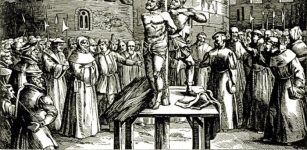 On This Day In History: He Wanted The Bible To Be Available To All – Burned At The Stake On Oct 6, 1536
News | Oct 6, 2016
On This Day In History: He Wanted The Bible To Be Available To All – Burned At The Stake On Oct 6, 1536
News | Oct 6, 2016 -
 Mysterious Maya Snake Kings And Their Powerful Kingdom In The Jungle Reveal More Ancient Secrets
Civilizations | Apr 23, 2018
Mysterious Maya Snake Kings And Their Powerful Kingdom In The Jungle Reveal More Ancient Secrets
Civilizations | Apr 23, 2018 -
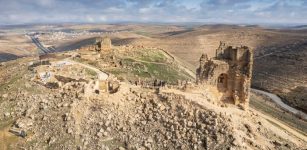 What Are The Huge Ancient Structures Beneath The Zerzevan Castle Discovered By Radar?
Archaeology | Sep 9, 2023
What Are The Huge Ancient Structures Beneath The Zerzevan Castle Discovered By Radar?
Archaeology | Sep 9, 2023 -
 Secrets Of The Egyptian Ankh Cross And Its Energy Properties Revealed
Ancient Symbols | Feb 13, 2020
Secrets Of The Egyptian Ankh Cross And Its Energy Properties Revealed
Ancient Symbols | Feb 13, 2020 -
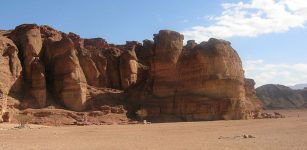 3,000 Years Ago Human Activity Destroyed Vegetation And Irreparably Damaged The Timna Valley Environment
Archaeology | Sep 23, 2022
3,000 Years Ago Human Activity Destroyed Vegetation And Irreparably Damaged The Timna Valley Environment
Archaeology | Sep 23, 2022 -
 Simon Magus ‘The Magician’ Who Faked Death And Resurrection
Featured Stories | Feb 17, 2022
Simon Magus ‘The Magician’ Who Faked Death And Resurrection
Featured Stories | Feb 17, 2022 -
 Lost Kingdom Of Cleopatra – Legendary Lost City Of Heracleion
Featured Stories | Apr 1, 2014
Lost Kingdom Of Cleopatra – Legendary Lost City Of Heracleion
Featured Stories | Apr 1, 2014 -
 Paleolithic Standing Bird Figurine – East Asian 3-D Art – Recovered From Refuse Heap
Archaeology | Jun 23, 2020
Paleolithic Standing Bird Figurine – East Asian 3-D Art – Recovered From Refuse Heap
Archaeology | Jun 23, 2020 -
 Queen Mama Ocllo: Legendary Wife Of Sapa Inca Manco Capac In Beliefs Of Andean People
Featured Stories | May 6, 2020
Queen Mama Ocllo: Legendary Wife Of Sapa Inca Manco Capac In Beliefs Of Andean People
Featured Stories | May 6, 2020 -
 5,000-Year-Old DNA Could Solve The Mystery Of Genetic Changes In Europe
Archaeology | Mar 8, 2022
5,000-Year-Old DNA Could Solve The Mystery Of Genetic Changes In Europe
Archaeology | Mar 8, 2022 -
 Praetorian Guard: Roman Elite Unit Assigned To Protect But Also Involved In Confinement, Execution, Spying And Threats
Featured Stories | May 26, 2018
Praetorian Guard: Roman Elite Unit Assigned To Protect But Also Involved In Confinement, Execution, Spying And Threats
Featured Stories | May 26, 2018 -
 Secret High-Tech Knowledge Hidden In Ancient Manuscripts And The Mysterious Seven Sky Kings
News | Aug 24, 2021
Secret High-Tech Knowledge Hidden In Ancient Manuscripts And The Mysterious Seven Sky Kings
News | Aug 24, 2021 -
 Mystery Of The Large Ancient Boulders In Ireland And Britain – Possible Connection To The City Of Troy?
Featured Stories | Oct 17, 2023
Mystery Of The Large Ancient Boulders In Ireland And Britain – Possible Connection To The City Of Troy?
Featured Stories | Oct 17, 2023 -
 Forgotten Ancient Ugarit: One Of The Flourishing And Oldest Cities Of Canaan
Featured Stories | Jun 15, 2023
Forgotten Ancient Ugarit: One Of The Flourishing And Oldest Cities Of Canaan
Featured Stories | Jun 15, 2023

